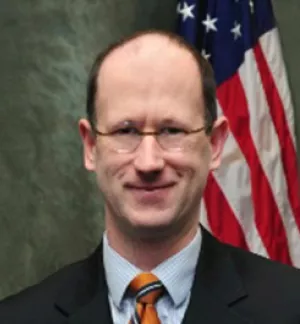The removal of some 30 pounds of highly enriched uranium -- HEU, the simplest material in the world from which to make a nuclear bomb -- from Romania a few days ago represents a significant victory in the global struggle to keep the essential ingredients of nuclear weapons out of terrorist hands. The move follows the airlift of three times as much HEU -- enough for two to three nuclear bombs -- from an insecure facility in Yugoslavia one year ago. The governments, organizations, and individuals who got the bomb material out of these facilities deserve the world's heartfelt thanks. Getting hold of this kind of material is the hard part of making a crude nuclear bomb; with enough HEU in hand, terrorists might be able to turn the downtown of any city in the world into a modern Hiroshima.
But there is much more to do. When the Yugoslavia operation -- known as 'Project Vinca,' after the institute where the material was located -- took place, the State Department estimated that there were 24 other sites around the world where similar operations were needed. And those are just the most worrisome ones. There are at least 130 operating research reactors fueled with highly enriched uranium in more than 40 countries. Many of these do not have enough nuclear material on hand for a bomb, but some do, and most are secured by little more than a night watchman and a chain-link fence.
Unfortunately, if we maintain the one-per-year rate of these two successes, it will be a quarter-century before even the 24 facilities on the State Department's list have been adequately addressed. After 9/11, we simply cannot afford that kind of delay. We need a focused 'global cleanout' program targeted on getting rid of bomb material from as many sites as possible around the world as quickly as possible and then effectively securing the sites that remain. The surest form of prevention of a nuclear catastrophe is to ensure there is no bomb material left to steal at these insecure sites.
The US government already has a plan in place to remove the potential bomb materials from these sites -- or rather, it has several programs dealing with parts of the overall issue, each with different management and approaches. The effort we propose would broaden and tie together the programs that already exist and add incentives to persuade those who run these facilities to give up their potential bomb material. Incentives are crucial: While many of these sites have no genuine need for bomb material anymore, their managers are concerned over what would happen to their facility and its scientists if the material is removed, which in some cases might mean shutting down an aging research reactor that is no longer needed.
Today we have a program to convert research reactors to use fuels that cannot serve as the core of a nuclear bomb -- but that program has no instruction to give aging, unneeded reactors incentives to shut down rather than converting, and it has only limited incentives to offer for conversion (which is largely why there are still 130 research reactors around the world using HEU). Similarly, the US effort to take back the tens of tons of HEU it unwisely provided to foreign research reactors in the past offers only limited incentives for facilities to take us up on the offer -- with the result that enough US-supplied HEU for hundreds of nuclear bombs will remain abroad when the program comes to its planned end in a few years.
An effective, fast-paced global cleanout program would need the flexibility to tailor incentives to the needs of each site. In the Romania case, for example, the key to unlock the deal was US agreement to pay for a load of fresh low-enriched fuel (which cannot be used as the core of a nuclear bomb) for the research reactor at the site. For the Yugoslavian facility, the essential incentive was help cleaning up the radioactive mess the research reactor had made over the years before it was shut down.
Fortunately, some in Congress have recognized the need to supplement existing efforts to remove these vulnerable bomb materials. Both the House and the Senate Appropriations Committee have approved bills that call for the establishment of such a 'global cleanout' effort to remove these deadly threats to world security. Despite the successes in Romania and Yugoslavia, the nuclear clock is still ticking.
Bunn, Matthew and Anthony Wier. “Faster Pace Needed on Uranium Removal.” The Boston Globe, September 23, 2003






